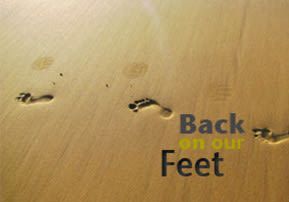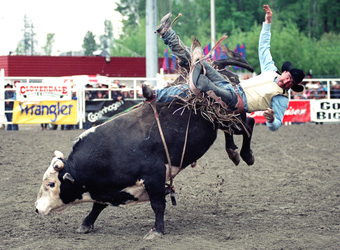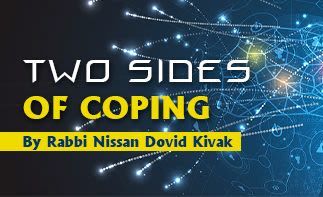
Back on our Feet
A person that falls yet gets up quickly gives much more gratification to Hashem than a person that never fell in the first place. People that don’t accept challenges never fall…

Translated by Rabbi Lazer Brody
The Tale of the Lost Princess Part 31 from The Garden of Yearning
The Sifting Process
A person comes to this world to perform a task. He’s required to visit all the places where he stumbled in former reincarnations, and to meet those individuals with whom he must “sift” out a soul correction. He must withstand trials and tribulations that will help him attain his personal tikkun, or soul correction, thus contributing to the tikkun of the entire world. He won’t be able to redeem his princess until he’s completed all the other tasks on the way.
Sifting our own good from the evil within us, thus correcting ourselves and attaining our person geula, or redemption, is an integral part of the general geula of the entire world. As such, Rebbe Nachman teaches (see Likutei Moharan I:5), that everyone should say: “The world was created just for me, therefore I’m responsible for the world, so I must attend to its needs and pray for it.”
Sometimes a person is actually on the level of worthiness, but his personal tikkun is delayed because the world isn’t yet ready. In that case, such a person should pray for the correction of the world, for the world’s correction and his personal correction are intertwined.
One would be best advised to pray daily for the success of the Jewish people, for Jewish outreach, for the spread of Torah and teshuva in the world, and certainly for the redemption of the Jewish people, the in-gathering of the exiles, and the rebuilding of our Holy Temple in Jerusalem. Praying for personal needs is not enough, especially when the world at large needs so much prayer and Divine mercy. Once again, the more a person contributes to the general redemption, the more he’ll hasten his personal redemption.
If a person ignores the world’s needs, and fails to pray for the general redemption and for the Jewish people as a whole, then he’ll be hampered from above again and again; such an individual won’t be allowed to complete his personal mission in rescuing his own princess.
Rebbe Nathan of Breslov said: “My Mashiach has come already!” In other words, Rebbe Nathan achieved his personal redemption, for he devoted his entire adult life to the general tikkun of the Jewish people with a level of self-sacrifice, dedication, perseverance and suffering that no words can describe. In his final days he wept that he didn’t devote even more time to disseminating Rebbe Nachman’s teachings in the world and writing more books based on Rebbe Nachman’s wisdom, which certainly would have been of priceless benefit for the Jewish people.
I Fell, but I Got Up
We must all know one thing: Every setback in life – even a setback that results from our own mistake – comes from above!
Therefore, one should never torture oneself. There’s no room to blame oneself or anybody else for troubles in life, and certainly not to fall into despair and depression. The important thing is desire; falling means nothing, as long as a person maintains a desire to do better. Never abandon your desires, for Hashem looks first and foremost at our desires. The best way to counter a fall or failure is to declare a new beginning and get back up on our feet as fast as possible. We desire to do better! The fall means nothing if we get back on our feet swiftly and with new resolve.

Life is like trying to ride a bull. Riders fall plenty, but the test is how fast will they’ll be back on their feet…
After a failure, a person is being tested; will he fall into despair and depression? Will he make a better second effort? How fast will he be back on his feet? When we utilize our fall to get up fast and to make a better second effort, then we turn a failure into a smashing success. That way, each of us is assured of achieving his or her complete personal tikkun.
Tremendous Reinforcement
Even more importantly, a person that falls yet gets up quickly gives much more gratification to Hashem than a person that never fell in the first place. Hashem wants our desire more than anything, and the biggest expression of desire is the manner that we pick ourselves up after a setback. OK, so we did something wrong? We did something that Hashem told us not to do? Let’s not fret! From this moment on, let’s decide that we’re going to be better. We can return to Hashem with greater desire and greater yearning. We can overcome our faults and our bodily drives. Oftentimes the fall simply fuels our desire – that in itself is a triumph!
The entire teshuva process depends on the desire to do better, especially after a setback. People that have bounced back from setbacks attain a much higher spiritual level than those that have never suffered setbacks. So many people fail to realize the gratification that Hashem receives when a person makes a tremendous effort in reinforcing himself after a fall. Those who get stuck in self-pity, despair, depression, and disappointment never make proper teshuva. Sadness cannot be a vessel for holiness.
The Yetzer Hara is a liar. He tries to tell a person that he or she is doomed after a fall. Hopelessness disarms a person. But, a new start and a new resolve disarm the Yetzer Hara.
Knowing that our fall comes from above saves us from a low self image, feelings of guilt, and from self-persecution. The worry and anxiety of despair destroy a person’s mental, physical, and spiritual health. Reinforcing ourselves after a setback and starting anew save us untold mental, physical, and spiritual wear and tear. The important thing is to get back on our feet as fast as possible.
Before we fall, we do everything in our power so that we don’t fall. But, once we’ve fallen, it’s a sign that Hashem wants us to strengthen ourselves. When we do, we’ve lost nothing and have gained everything – a tremendous new spiritual reinforcement!
Each fall is really a chance to attain new heights. The more we reinforce ourselves, the more we’ve taken advantage of a fall or setback as a growth tool.
Breslever tradition, handed down from teacher to pupil for the last two hundred years, teaches that in the future – after the sin of Adam is rectified – the world will be far more beautiful than it would have been had Adam never sinned. The same goes for the individual: the person that fearlessly recovers from a fall develops a depth of enhanced inner strength that those who have never fallen don’t usually attain.
To be continued.














Tell us what you think!
Thank you for your comment!
It will be published after approval by the Editor.